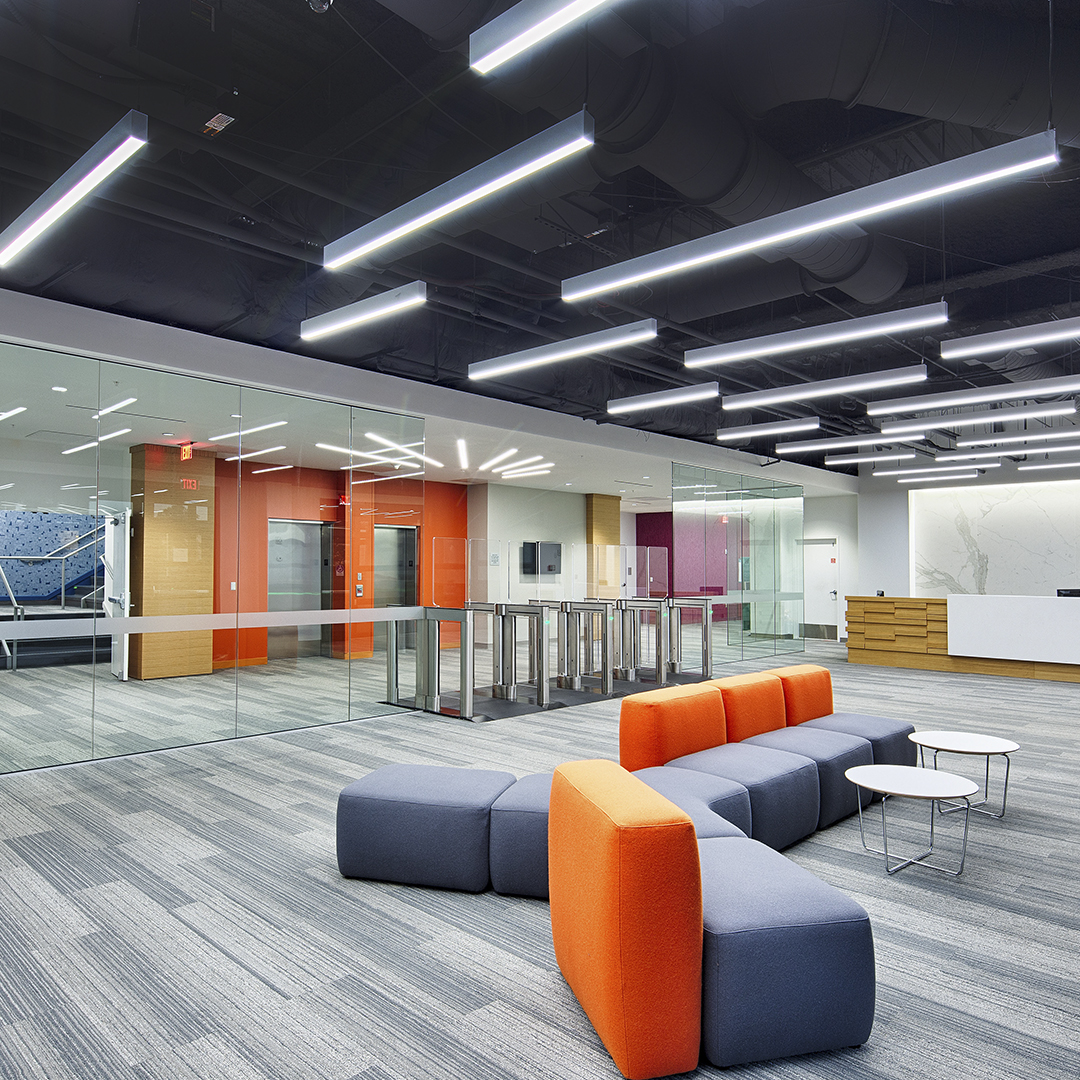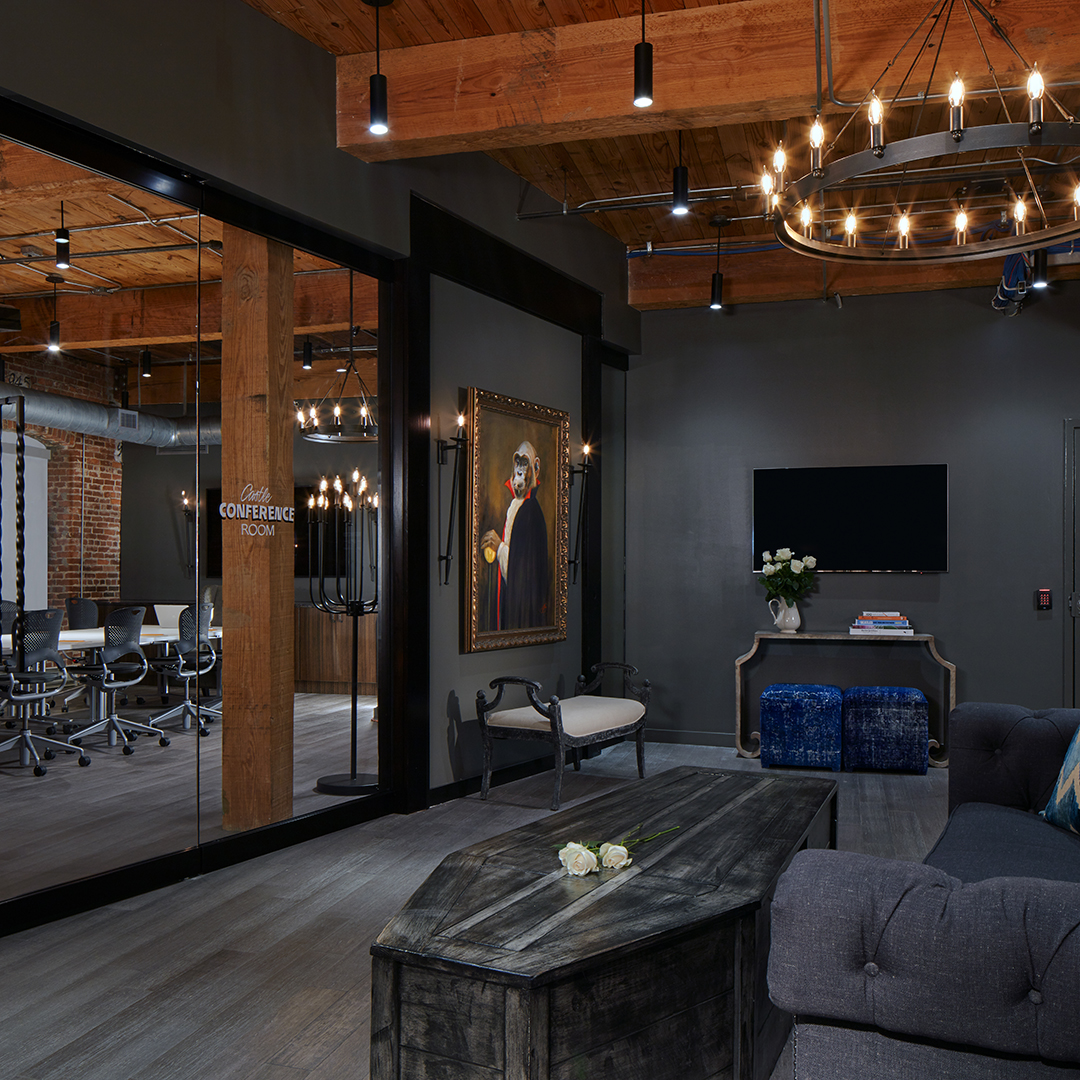|
Getting your Trinity Audio player ready...
|
Brian Mundy’s career began with working for his dad, a union carpenter who started his own contracting business when Mundy was only eight. The company did commercial interior finish work including ceilings, drywall, metal studs, and insulation, as well as general contracting. “I kind of had a taste of all that growing up,” Mundy remembers.
One of the family’s clients was Shoe Carnival, where Mundy would eventually take on the role of director of construction. Years before that, Mundy helped his father finish and remodel the stores. “I always got the hard jobs, you know, the stuffing insulation,” he says. “I think my dad did that so I would stay in school.”
Mundy attended Purdue and studied civil engineering, then designed bridges with the Indiana Department of Transportation. From there, he worked for a consultant where he oversaw varied projects from concept through completion, handing the keys over to the client. Most of the projects were related to water and sewer plants, but some were retail construction, which led him back to Shoe Carnival.
One of the biggest requirements for retail construction managers, according to Mundy, is the willingness to change. “There’s a lot of change that goes on at the last minute in retail, and you have to be able to deal with that. If you’re the kind of person that doesn’t like change, you’re probably not going to make it in this business,” he says.
Change often comes from the constant drive by merchants to find ways to increase sales in the store, which then result in design changes. “For example, if they want to light an end panel on a run of gondola, they don’t think about how we’re going to get power to that,” Mundy says. “You’ve got to be able to work with those people and coach them and make them understand how those decisions affect everything else.”
“If you’re the kind of person that doesn’t like change, you’re probably not going to make it in this business.”
For example, says Mundy, a new fixture might cost $500, but to light it well could be an additional $2,000. As the project manager, he would explain the tradeoffs and guide the organization to the best decision. “When I first came to Shoe Carnival, that wasn’t really the case. It was more reactive. ‘They want this so just throw it in and don’t worry about the cost,’” he says. “Once you start talking about costs, it impacts things like that. It makes a difference.”
In addition to adding cost, late changes can threaten the timeline, which is often non-negotiable in retail where merchandise is seasonal and, in Shoe Carnival’s case, ordered seven to eight months in advance. If a store is set to open in during the Easter season and misses that date, the sandals and other spring and summer shoes that were ordered would no longer be appropriate for the next opening season.
“We would have to try to either get rid of it somewhere else, or it would have to be put on clearance,” says Mundy. “It’s a big deal from the merchandising standpoint to stay on that schedule. And also, we are a publicly traded company, so those anticipated sales are calculated into our numbers that we report to Wall Street.”
With so much responsibility hinging on the construction team, Mundy implemented a cross-functional project approval process at Shoe Carnival, bringing all the relevant departments to the table—real estate, merchandise, and HR operations, in addition to construction. “I think it’s helping the entire team,” says Mundy. “Everyone understands better how their piece of the puzzle affects everyone else, and I think that helps immensely whenever you’re trying to meet a deadline.”
“You can design something that’s spectacular, but you also have to be able to build it.”
Before he arrived at Shoe Carnival, Mundy says this type of collaboration was happening through email, but he took the initiative to make it a regular meeting. “Somebody has to take charge. Somebody has to be the project manager,” he says, and in his case, it made sense that the construction team would take the lead. “It’s up to us to make sure that the store is opened on time. The other teams rely on us to give them the information—the dates, the schedules—so that they can put their piece of the puzzle together.” In Mundy’s five years at Shoe Carnival, the team never missed an opening.
His efforts to unite a team and embody that spirit of collaboration has not gone unnoticed by his partners. “Brian is a leader in the retail industry due to his work commitment, his definition of clear expectations, and his trust in those he works with including his many allies and outside resources,” says Bob Baker, VP of construction at TDS Construction. “The level of collaboration that occurs while working together sets him apart from the rest.”
Mundy has enjoyed the diversity of his career, and he credits his upbringing and the hands-on experience he gained with preparing him for the range of roles and projects he’s worked on. “A lot of times that’s not the case with especially young engineers. They don’t have that experience,” he says. “You can design something that’s spectacular, but you also have to be able to build it.”
Editor’s Note: As of press time, Brian Mundy is no longer with Shoe Carnival.


